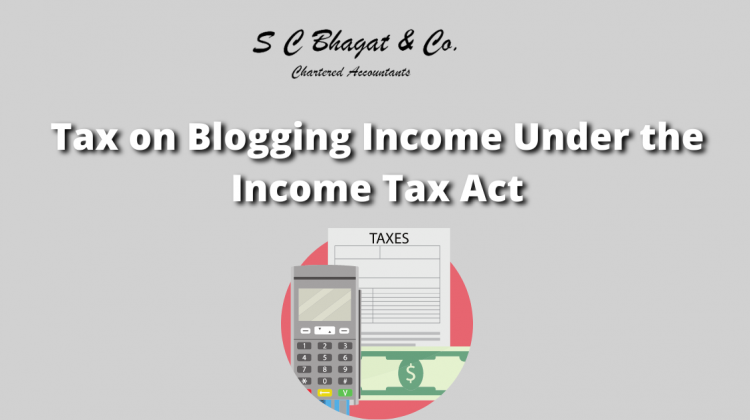The need for content providers and bloggers has risen dramatically since the advent of social media. Blogging is a popular job not only because of the platform it provides for self-expression, but also because it pays well. The income earned by a blogger is subject to the Income Tax Act’s tax regulations.
Blogger’s Definition
A blog is defined as “a website featuring a writer’s or group of writers’ own experiences, observations, opinions, etc., and often including photographs and connections to other websites” according to the dictionary.
So, a blogger is someone who consistently updates this website with new stuff. A blog is a self-contained source of information that expresses the writer’s thoughts and opinions.
For a blogger, there are a variety of ways to make money.
A blogger can make money from their blog in a variety of ways. Here are a few examples:
- Advertisements – Adverts are the most typical way for a blogger to make money. A blog becomes a platform for promoting a company’s products or services. Google AdSense, one of the most popular ad networks, offers substantial rewards to bloggers who make their ad spots available for business; the blogger earns money every time a reader clicks on the advertisements.
- Affiliate sales – In this case, the blogger puts links to products or services on his or her site that are relevant to those products or services. The blogger earns money if the reader clicks on the links and purchases the goods or service.
- Paid review — Businesses might approach a well-known blogger and seek a paid review. The blogger earns money by publishing the review.
Implications for Taxation
As may be seen, blogging revenue does not fit neatly within the five categories of income defined by the Income Tax Act. Because of the nature of the activity, the revenue should be regarded as income from a business or profession and handled as such.
Business/Professional Income
According to the Income Tax Act, the taxpayer must pay taxes on the income in the profit and loss account after taking into account the overall revenue and expenses, and then remit taxes on the net income.
Allowable Expenses
The income from blogging will be taxed as business income, and hence certain expenses are allowable. These expenses will be deducted from the total revenue, and only the income net of expenses will be taxed. The allowable expenses are:
- Domain hosting expenses.
- Rent expense.
- Utility expenses such as electricity, telephone, etc.
- Employee salaries.
- Payments to freelance consultants.
- Convenience charges.
- Any other charges that are incurred for the purpose of earning revenue.

